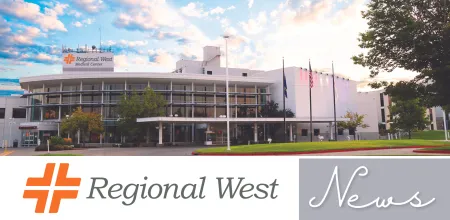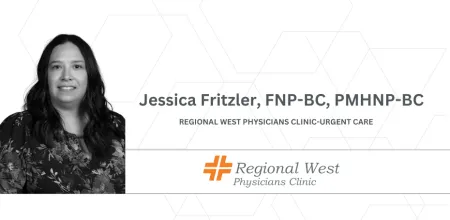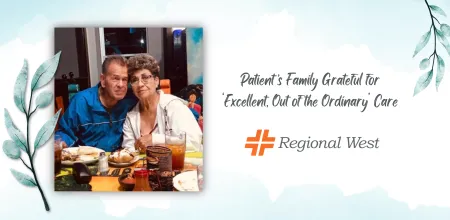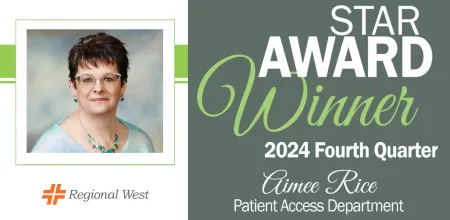Regional West Resumes Elective Surgical Procedures

SCOTTSBLUFF, Neb., ― We are open and serving the region with all your healthcare needs! Regional West resumed elective surgeries May 4 after being closed to all but time sensitive surgeries for the past several weeks. The closure was in response to a state directive regarding the COVID-19 pandemic.
“We are following all Nebraska Directed Health Measures (DHM) guidelines and recommendations for surgical procedures,” said Regional West Chief Medical Officer and Chief of Obstetrics Matthew Bruner, MD, FACOG. “This means taking steps to mitigate risk, including masks and additional screening questions for patients, providers, and staff. Staff and patient safety is our top priority.”
Essential surgery is a procedure considered to be vitally necessary for treating a disease or injury. Postponing or deciding against an essential procedure may result in a patient’s death or permanent impairment. Elective surgery is a procedure that can be scheduled in advance and is not considered to be an emergency.
In addition to regular pre-surgical testing, surgical patients are required to have a COVID-19 test a few days prior to their elective procedure, and are asked to self-isolate at home during the remaining days between testing and surgery. This includes obstetrics patients who have an upcoming planned C-section. Women who are planning a natural birth are asked to self-isolate at home for the two weeks before delivery.
One friend or family member is allowed to accompany each patient to the hospital the day of surgery, and the surgeon will provide an update to him or her following the procedure. For the time being, if a patient remains in the hospital as an inpatient following surgery, no visitors are allowed.
Regional West patients who have tested positive for COVID-19 are located in a separate area of the hospital from other patients. Patients designated as ‘COVID-19 rule out,’ where results of testing are not yet known, are in another designated care area of the hospital.
“Currently in the panhandle, most patients with COVID-19 are able to recover at home, rather than in the hospital,” said Dr. Bruner.
Jeffrey Holloway, MD, FACS, acting president of Regional West Physicians Clinic and Regional West Chief of Surgery, stressed the importance of not letting fears of COVID-19 interfere with going to the Emergency Room if you feel it necessary.
“The Emergency Room is open. It’s safe. They are screening everybody,” he said. “If you’re having chest pain or stroke symptoms, for example, you don’t want to ignore them and let the situation worsen. We want people to feel comfortable about getting surgical procedures done, coming to the Emergency Room, and making clinic appointments.”
Patients, especially those with chronic medical conditions, are encouraged to maintain regular clinic appointments. For patient and staff safety, all patient are screened prior to entering the building. Those with respiratory symptoms are denied entry and referred to Regional West’s offsite Respiratory Clinic.
In addition to regular in-person visits, some patients now have the option of virtual healthcare appointments at all Regional West Physicians Clinic clinics. Introduced in April, virtual visits allow patients to keep their distance and get treatment, follow-ups, and medication prescriptions following a procedure or for illnesses and minor injuries, using an easy to download app on a smartphone or computer. Call your provider to see if virtual healthcare visits are an option for you.
Regional West Health Services in Scottsbluff, Neb., is the parent company of Regional West Medical Center, a 188-bed regional referral center and one of three Level II Trauma Centers in the state. As the region’s only tertiary referral medical center, Regional West offers care that spans more than 32 medical specialties provided by over 28 physician clinics. With nearly 300 in-network providers, and 2,000 employees, Regional West provides comprehensive and innovative health care services for the people of western Nebraska and the neighboring states of Colorado, South Dakota, and Wyoming.









